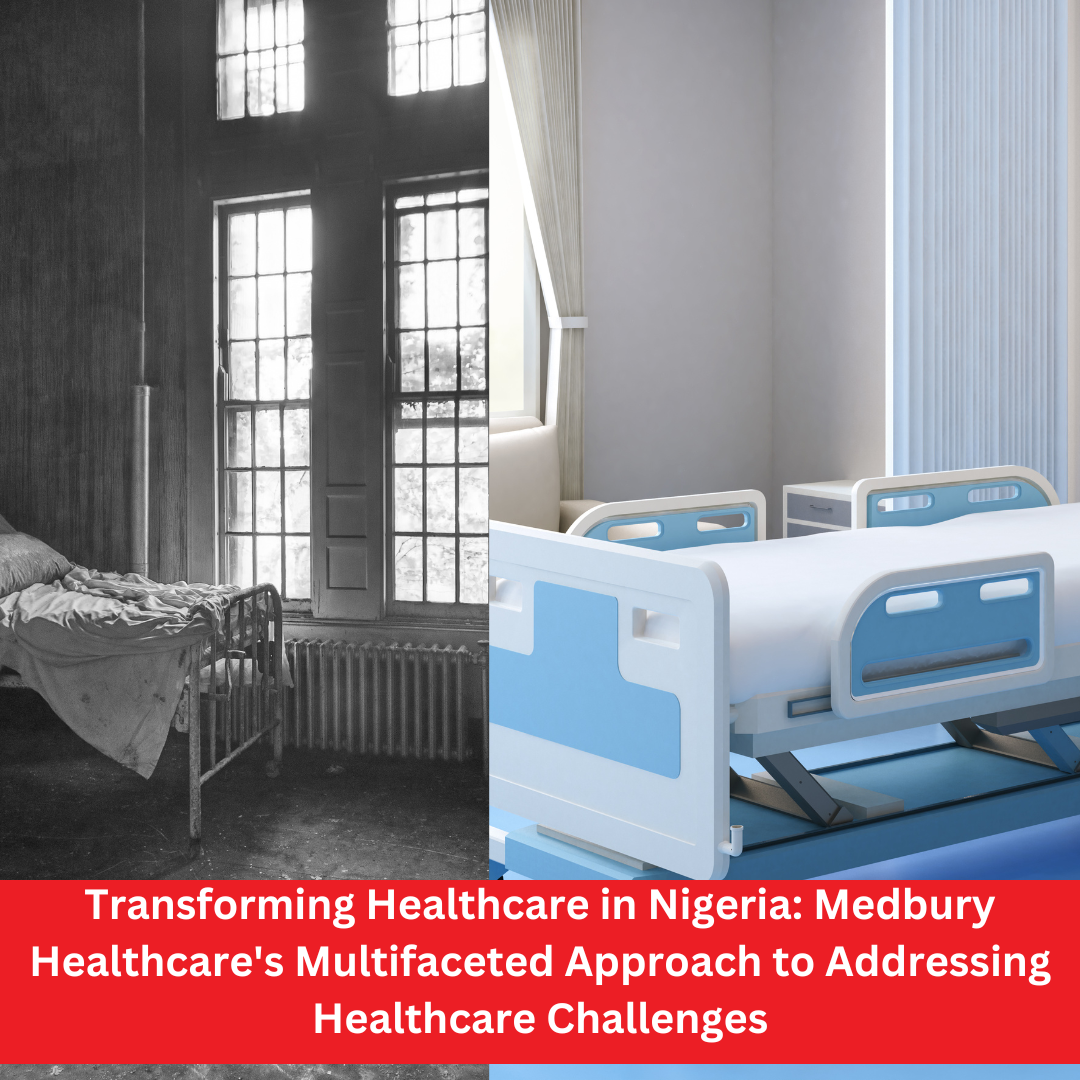Nigeria, with its vast population and diverse healthcare needs, faces numerous challenges in providing accessible, affordable, and quality healthcare services. Factors such as inadequate infrastructure, a shortage of healthcare workers, insufficient funding, and a high disease burden contribute to these challenges. In this blog post, we will explore these key healthcare challenges in Nigeria and discuss how Medbury Healthcare is working to fix them.
What are the Healthcare Challenges in Nigeria?
Inadequate Infrastructure: Many healthcare facilities in Nigeria lack basic infrastructure such as electricity, clean water, and medical equipment. This has created a ripple effect, reducing service quality as healthcare professionals struggle to deliver optimal care. Outdated equipment hinders the ability to provide a full range of medical services, significantly impacting patient outcomes.
Shortage of Healthcare Workers: Nigeria faces a severe shortage of healthcare workers, including doctors, nurses, and other allied health professionals. This limits the capacity of the healthcare system to meet the needs of the population, leading to limited access to care, longer wait times, and fewer specialists. Existing staff are overworked and burned out, potentially affecting the quality of care, especially in rural areas.
Insufficient Funding: The healthcare sector in Nigeria is underfunded, leading to a lack of essential medicines, medical supplies, and infrastructure development. This affects the quality and accessibility of healthcare services across the country.
High Disease Burden: Nigeria’s fight for a healthy population is burdened by a high prevalence of both infectious and chronic diseases, including malaria, HIV/AIDS, hypertension, and diabetes. These conditions require specific treatments, readily available medications, and long-term management, all of which burdens a healthcare system already strained by resource limitations.
Poor Health Insurance Coverage: The majority of Nigerians lack access to health insurance, making healthcare services unaffordable for many. This results in delayed or inadequate care, leading to poor health outcomes.
How Medbury Healthcare is Addressing These Challenges
The Challenge of Inadequate Infrastructure: Medbury Healthcare collaborates with state governments across Nigeria to address healthcare infrastructure challenges. Through these partnerships, Medbury implements the installation of state-of-the-art medical equipment and infrastructure in public health facilities, enhancing the quality of healthcare services and improving overall healthcare delivery.
Shortage of Healthcare Workers Challenge: Medbury Healthcare is contributing to the reduction of the gap caused by brain drain through Medstaffing. We recruit, train, and deploy qualified healthcare professionals to organizations and public health facilities, helping to alleviate the shortage of healthcare workers in Nigeria.
High Disease Burden Challenge: Medbury Healthcare is actively addressing Nigeria’s high disease burden through Medbury Diagnostics. We provide screening services across the country through Lifecheck centers strategically located throughout Nigeria.
Poor Health Insurance Coverage Challenge: Medbury Healthcare is effectively addressing the issue of poor health insurance coverage through Medadvisory. This service, provided by Medbury Corporate and Occupational Health Division, covers health insurance advisory to organizations, empowering them to make informed choices when selecting the right Health Maintenance Organization (HMO) for their employees.
Medbury is Committed to Fixing Healthcare in Nigeria
Addressing healthcare challenges in Nigeria requires a multifaceted approach involving the government, private sector, and civil society. Medbury Healthcare operates actively within the private sector and collaborates with the public sector to address these challenges.




